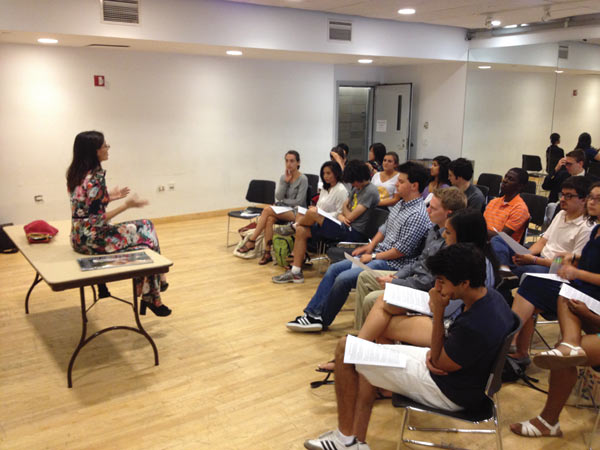Scholar Sheds Light on Campus Hookup Culture
By Luke Foster, Columbia '15 The first few weeks of classes are always an overwhelming time for new students on Ivy League campuses. The pace and pressures begin to mount; stress increases, if anything, faster than the workload. And these first weeks are also a proving ground for the moral and spiritual decisions that shape college experiences and lives to come. The party and hookup culture plays a major role. It's easy to think that hooking up is the only way to have fun, and many students from Christian backgrounds turn away from their faith to follow a seductive path.
The first few weeks of classes are always an overwhelming time for new students on Ivy League campuses. The pace and pressures begin to mount; stress increases, if anything, faster than the workload. And these first weeks are also a proving ground for the moral and spiritual decisions that shape college experiences and lives to come. The party and hookup culture plays a major role. It's easy to think that hooking up is the only way to have fun, and many students from Christian backgrounds turn away from their faith to follow a seductive path.At Columbia, the dark underbelly of the hookup culture has been vividly highlighted in recent weeks. Activists from the national coalition No Red Tape have aggressively condemned the administration for not doing more to combat sexual assault. Senior Emma Sulkowicz has undertaken a performance art piece, carrying a mattress around campus until the man she accuses of raping her has been expelled. The exploitation and manipulation that is routine in much of campus interaction between the sexes forms an enormous part of this subtext.
On September 7, Columbia's Anscombe Society, a chapter of the nationwide Love and Fidelity Network, hosted scholar Donna Freitas, whose latest book is entitled Sex and the Soul. Through the presentation of her research and analysis on the hookup culture, Anscombe hoped to provide a positive vision of human sexuality and offer Columbians hope of finding lasting love. A crowd of around 40 students turned out to hear her on a Sunday afternoon.
Freitas presented the findings of her eight years of research and hundreds of interviews with college students on hookup culture. What, exactly, is "hookup" culture? She described it as the umbrella culture for sexual and romantic interaction on almost all American college campuses (certain Christian colleges escape this dynamic). It has become normal, even "cool" in certain contexts, for college students to engage in ambiguous, anonymous sexual encounters—anything from making out to intercourse—without expecting any prior or subsequent romantic relationship.
Dr. Freitas' research revealed that a large majority of college students feel alienated and frustrated by the hookup culture. Most would like to see a revival of the dating culture, with its norms and traditions to structure romance. But what drives behavior, she found, is "what everyone thinks of what everyone else thinks." Students fear being perceived as weak, as not achievement-driven enough, if they pursue romance in college.
These responses from her interviewees led Freitas to draw some sobering conclusions. "We are becoming a culture where to be normal is to be apathetic," she argued: hookups thrive on lack of communication, on emotional disconnect, and ultimately on devaluing both self and other. Freitas saw this as having long-term effects on the emotional and relational health of the Millennial generation. And she made a case that the hookup culture—because it shuts down communication in sexual encounters—horribly complicates adjudicating the standard of "consent" used in rape cases. Who can give consent while both parties are drunk, in the dark, in a corner of a dance floor?
On a hopeful note, Freitas observed that over 80 percent of her interviewees identified as spiritual or religious. These students also felt unable to express that religiosity on campus, and wanted to understand how to connect sexuality to their spirituality. Freitas closed with a word of advice on how to reclaim romance amid the hookup culture's sordid reality: "You have to be fools for love!"
And various Christ-centered ministries on campus are meeting exactly this need, challenging students to be fools for God's love and to reshape the quest for human love around the Cross.





